Whether along the southeastern Alaskan mainland or on any of the thousands of islands that fall inside the boundaries of the Tongass National Forest, and within steps of waters where seals, orcas, whales and salmon swim, you're likely to find something you won't find almost anywhere else within the United States: old-growth trees. The Tongass, the largest coastal temperate rainforest on the entire globe, is home to massive, rare old-growth forest stands—where some of the trees are over 800 years old.
The Tongass National Forest is one of the world's largest intact ecosystems—whose unfragmented habitat has been proven to be vital to countless species of flora and fauna, including salmon. The salmon that spawn in the Tongass' 17,000 miles of rivers, streams and lakes that support ocean-going fish represent 30 percent of Alaska's entire annual harvest—a whopping 50 million fish. The Tongass is also home to to the world's largest population of bald eagles which, along with the forest's other wildlife, its towering glacial peaks, glistening fjords and more, help fuel a vibrant tourism industry.
Combined, the Tongass' fishing and tourism industries—which contribute over a billion dollars in annual revenue to Alaska's economy—account for 25% of all jobs in southeast Alaska.
Over the years, state and federal agencies have recognized and taken measures to protect the forest's inherent value. One of the measures which has been widely recognized as vital to protecting the Tongass' salmon and other species is the 2001 Roadless Rule. Used to identify and protect high value habitat throughout the United States, in the Tongass, the Roadless Rule protects some 9.2 million acres of land from being subject to road construction or reconstruction and timber harvesting.
The Trump administration, under pressure to increase logging opportunities from the Alaskan governor and congressional delegation as well as powerful economic interests, is seeking to undo those protections—to exempt every single acre of the Tongass' 9.2 million protected acres from the Roadless Rule. If the administration gets its wish, the exemption would open up 185,000 acres of previously protected forest to logging, 165,000 acres of which is higher-value old-growth forest.

Old-growth timber is more commercially viable in southeast Alaska and provides logging companies with a higher rate of return. And it's this goal that the logging industry and the U.S. Forest Service under the current administration—not an increase in logging or an increase in logging jobs—are targeting.
In its draft environmental impact statement and its cost-benefit analysis of its proposed changes to the current Roadless Rule protections which, in the administration's preferred alternative would lift those protections and open the Tongass' old-growth forest stands to logging, the USDA highlights millions in increased profits for the timber industry but no increase in the number of jobs the logging industry provides to southeastern Alaska, which amounted to a paltry 354 jobs (less than 1% of all southeastern Alaska jobs) in 2017.
Specifically, the administration's own analysis states that the Forest Service found that "no change in timber related employment or income is expected as a result of the proposed rule or other regulatory alternatives."
This projected growth in profits without an increase in logging is the result of unlocking timber harvesting in higher-value old-growth forest stands. One logging company executive, Alcan Forest Product's Eric Nichols, told NPR last month that access to higher-value timer could allow his company to ride out uncertainties in the global market. One of those uncertainties? Trump's trade war with China. Nichols told NPR that his tariffs on spruce trees has doubled, saying "You know, 20% hit us out of the blue. I was — I really expected those guys to resolve their differences and solve this."
Conservation groups like Trout Unlimited are urging individuals to "speak up for the Tongass" during the 60-day public comment period that began October 18th.
According to Mark Hieronymous, Sportfish Outreach Coordinator for Trout Unlimited's Alaska program, "The Tongass is one of the few places in the world where wild salmon and trout still thrive and development hasn’t reduced the landscape to a patchwork of inadequate wildlife habitat. People throughout Alaska and the United States depend on the healthy productive rivers, wild fish, and unfragmented lands of the Tongass for food, jobs and recreation. Opposing changes to the current Roadless Rule will ensure these needs are met for future generations."












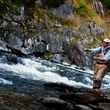
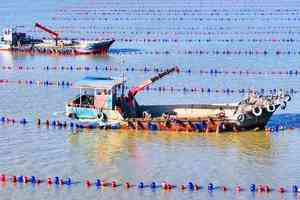


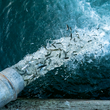
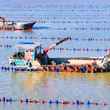











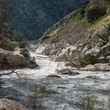
Comments